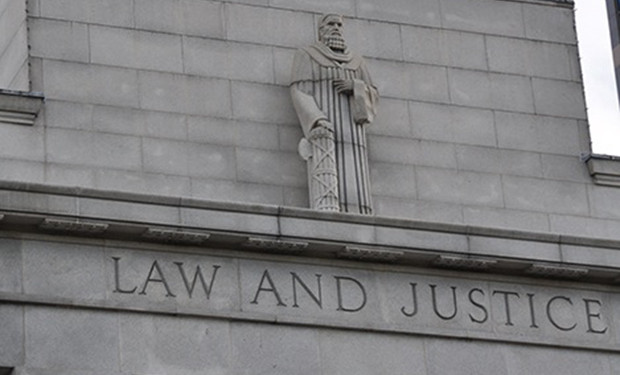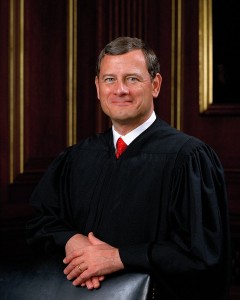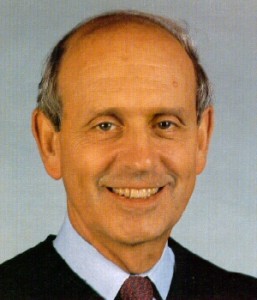Everyone is free to speak, but money speaks volumes
McCutcheon v. FEC protects the political speech of the wealthy, but will the voice of the general public be lost?
When the decision from McCutcheon v. FEC was handed down earlier this month, the New York Times called it “another blow to democracy.” The Atlantic said it legalized corruption. With the elimination of one more campaign finance restriction, critics worry that elections will be even more susceptible to corruption.
But corruption is in the eye of the beholder.
The Bipartisan Campaign Reform Act limited the amount of money an individual donor could give to individual candidates and party committees. These “base limits” allowed donors to make contributions up to $5,200 to individual candidates during a two-year election cycle and $5,000 to party committees.
The BCRA base limits were not at issue in McCutcheon and remain intact. However, the BCRA’s aggregate limits, which limited the maximum number of candidates an individual could donate to, were eliminated as an unconstitutional limitation of free speech.
Influence and access are not corruption.
The BCRA campaign contribution limitations were aimed at curbing corruption in campaign financing. The plurality opinion (pdf) wrote that the BCRA is an attempt to cut down on quid pro quo corruption, or votes in exchange for money. The limits, in other words, were created solely for the purpose of preventing quid pro quo corruption, not for reducing the amount of money in politics. The wealthy may be able to use their money to gain access to and influence political leaders, but influence and access are not corruption.
“[The government] may not target the general gratitude a candidate may feel toward those who support him or his allies, or the political access such support may afford,” Chief Justice John Roberts wrote. “[Gratitude and access] embody a central feature of democracy—that constituents support candidates who share their beliefs and interests, and candidates who are elected can be expected to be responsive to those concerns.”
Where one may see a constitutionally protected form of support, another may see corruption. If campaign contributions are a form of support, and politicians are expected to be responsive to that support, then should not everyone who provides support in any form have the same opportunity to access their elected officials? If campaign contributions are a form of corruption, however, are aggregate limits the least burdensome means of fighting that corruption?
“[T]he aggregate limits do little, if anything, to address [corruption] while seriously restricting participation in the democratic process,” Chief Justice Roberts wrote.
Money speaks volumes, and those without it are losing their voice.
Justice Stephen Breyer, taking a broader view of corruption in his dissenting opinion, considered how campaign contributions could corrupt the political process and threaten the integrity of public governmental institutions. Ensuring that all can participate in the democratic process, and not just the wealthy, will protect the “free marketplace of political ideas.”
Those who criticize the decision do so because they perceive the real issue in the case to be about an equal right to be heard, not an equal right to freedom of speech. As Chief Justice Roberts stated in the plurality opinion, “the concept that government may restrict the speech of some elements of our society in order to enhance the relative voice is wholly foreign to the First Amendment.” While some may find it unfair that those with big money have the louder voice, the court is not persuaded by their plea to “level the playing field.”
Justice Breyer viewed the riddance of aggregate limits to be an inhibition to free speech, rather than an enablement of that right. The McCutcheon plurality creates a world in which the wealthy have broader political influence, and in theory, more access to decision makers. Money speaks volumes, and those without it are losing their voice.
“Today’s decision eviscerates our Nation’s campaign finance laws, leaving a remnant incapable of dealing with the grave problems of democratic legitimacy that those laws were intended to resolve,” said Justice Breyer. “Where money calls the tune, the general public will not be heard.”
“Where money calls the tune, the general public will not be heard.”
With the aggregate limits in place, the most money that an individual could contribute was $123,200. Now it is possible for one person to donate up to $3.6 million to House and Senate candidates and political party committees. Furthermore, the ruling allows individuals to make contributions to as many party committees as they like.
“Today’s decision substitutes judges’ understandings of how the political process works for the understanding of Congress, fails to recognize the difference between influence resting upon public opinion and influence brought by money alone, overturns key precedent, creates serious loopholes in the law, and undermines, perhaps devastates, what remains of campaign finance reform,” Justice Breyer said.
Excessive money in politics may be objectionable, and protecting large campaign contributions as free speech is dubious. Yet, it is allowed to exist as a form of free speech because the Constitution protects speech from government intrusion, no matter how repugnant that speech may be. As Chief Justice Roberts pointed out, the Court has protected Nazi parades, flag burning, and protesting at funerals. That is a good point, but critics are not convinced.
In those situations, the offensive speech could be countered by good speech. For example, a flag burning could be countered by proudly waiving the American flag. Both speakers have an equal voice. Similarly in a public forum, the government must give equal opportunity for both supporters and critics of an issue to speak their mind. Limiting aggregate campaign contributions is not like favoring one side over another; rather, it is more akin to providing a microphone and equal speaking time to those participating in the public forum.
Benefits to the donor, candidate, and the public will be mutual.
Aggregate limits burden only those who can afford to be burdened by them. Still, limits are a burden on free speech nonetheless and must pass constitutional muster. The Court spent very little time discussing Buckley v. Valeo, which upheld campaign contribution limits as constitutional restrictions of speech as a means of preventing corruption.
In effect, Buckley stood for the proposition that politicians had to raise money from multiple donors and donations had to be small enough to preclude quid pro quo corruption. It also eliminated the appearance of impropriety, as the influence of wealthy donors diminished. However, low campaign contribution limits made campaign capital hard to come by, and more and more time was spent fund raising.
Then came Super PACs—political action committees that can raise unlimited sums of money from corporations, unions, associations and individuals for the purpose of advocating for or against political candidates. The organizations are notoriously opaque and politically unaccountable. In Citizens United v. Federal Trade Commission, a controversial 2010 decision, a split Supreme Court held that regulating political expenditures by corporations, associations, and labor unions was an unconstitutional restriction of free speech. As of April 2014, 1,001 groups organized as Super PACs reported total receipts of more than $157 million in the 2014 cycle.
Critics of the McCutcheon decision argue that the plurality holding is yet another windfall for corporate spending in political campaigns. However, the decision could have the effect of undermining the Super PACs.
By eliminating aggregate limits, wealthy donors could decide to make donations directly to campaigns. The benefits to the donor, the candidate, and the public would be mutual. The donor could publicly show support to the candidate—not the ideology of a less transparent entity—and build good will with the candidate. Also, the candidate could control the money and his or her message. Lastly, the general public would have the benefit of full disclosure.
Even more, proponents of the McCutcheon decision argue that newcomers to the political ring will be better equipped to challenge long-entrenched incumbents, due in part to a potential donor’s ability to spread financial resources among more candidates, rather than concentrating their bets.
McCutcheon may be a win for free speech, but it could be a denial of the electorate’s voice.
The benefits of raising campaign contribution limits are plausible, but remain dubious. As money continues to be pipelined into political campaigns by wealthy individuals and corporations, many in the general public will approach the democratic process with increasing skepticism. McCutcheon may be a win for free speech, but it could be a denial of the electorate’s voice.







